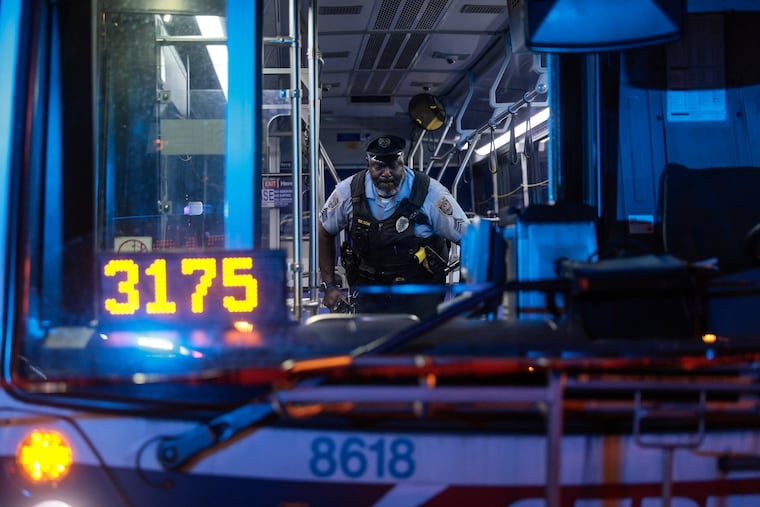Take off the ski mask or skip the ride, SEPTA says
SEPTA announced new enforcement of a ski mask ban after a teen was fatally shot by someone wearing one on a bus.

Whether you call it a ski mask, balaclava, or a Sheisty mask — a nod to Memphis rapper Pooh Sheisty — expect to be stopped by SEPTA Transit Police if you’re wearing one on the system.
Transit police will be enforcing a ski mask ban after multiple violent incidents involving people looking to obscure their identity with these full-face coverings, according to agency spokesperson Andrew Busch.
“We think [the masks] could be emboldening some of this behavior because they don’t think it can be traced back,” he said, adding the policy is not new.
SEPTA has kept a list of items prohibited on its properties for decades, said Busch. The general framework, he said, has been updated through the years, so it’s unclear when exactly masks that disguise someone’s identity were added, but the restriction has been around for a number of years. The list also includes items such as fireworks, swords, and archery equipment. Facsimiles of these items are also banned.
Until this week, the mask restriction hadn’t been as strongly enforced, especially during the pandemic.
Some states have enacted similar restrictions in the past in an effort to deter crime. Florida bars anyone older than 16 from wearing hoods or masks to conceal or cover their identity in public when committing a crime, and West Virginia prohibits masks that conceal a person’s identity in certain settings, with recent exceptions made for those trying to protect themselves from COVID-19.
Still, ski masks, which can come in various colors and patterns, have gained popularity as a fashion statement among some young people, much to the chagrin of others. Busch said riders have expressed feeling uneasy because of the masks.
Busch said people who wear masks that help protect against COVID-19, religious coverings, or medical masks need not worry; these are not part of the new enforcement effort.
And only transit police will be approaching riders with ski masks. Bus operators and station attendants won’t engage in enforcement.
Those who don’t comply will be booted from transit, but not charged or cited. The enforcement was officially announced Thursday, Busch said, with police ramping up enforcement during patrols to no reported objections so far.
“It’s a prevention strategy to keep these violent incidents from happening, to make sure people know police are keeping an eye on the system, discouraging from that kind of behavior,” said Busch.
SEPTA doesn’t have data on the number of violent incidents involving ski masks on the transit system, said Busch. But as recently as Wednesday night, a young man wearing one of these full-face coverings boarded a Route 23 bus and started an argument with another teenager, which ended in him fatally shooting that passenger.
Though the system has a vast network of cameras that can capture clothes people are wearing and their mannerisms, face coverings can make it harder to identify suspects.
The new enforcement comes as Charles Lawson settles into the top role in the transit police — he was acting chief since July and promoted last week.
Lawson has said he wants more officers patrolling the system at a time riders have expressed concerns about safety.
The transit police is already slated to get about a 10% increase in officers with 25 new members joining the force, said Busch. The agency is also looking at new technology that can aid in their crime prevention efforts, such as AI that can help detect when a gun is brandished on public transit.